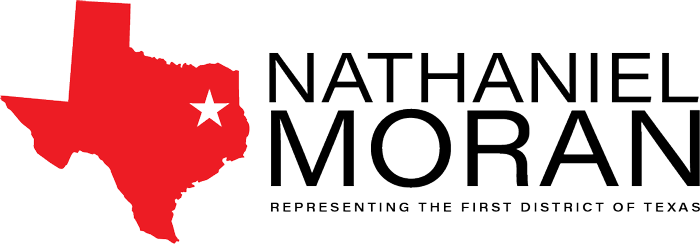Press Releases
Congressman Moran Introduces Rural Weather Monitoring Systems Act
Washington, D.C.,
July 17, 2023
Washington, D.C. - Congressman Nathaniel Moran (TX-01) released the following statement today after introducing the Rural Weather Monitoring Systems Act:
"For the safety and security of rural Americans, expanded access to accurate weather monitoring systems that have the ability to track life-threatening weather events is vital. My new legislation, the Rural Weather Monitoring Systems Act, will require a review of current weather monitoring systems in rural areas. While similar studies have been performed in the past, the former legislation stopped short of effecting material change. This new legislation’s goal is to expedite the implementation of solutions in areas where NEXRAD coverage must currently be supplemented. This is the first step to reducing the National Weather Service’s reliance on secondary resources in rural East Texas.
“My bill also identifies regulatory barriers, funding limitations, and other obstacles standing in the way of the development, and implementation of next-generation weather monitoring systems so that we can improve emergency preparedness and save lives in rural America."
Background information:
Accurate weather forecasting in rural areas of the United States is a challenge due to technological limitations and the fact that weather forecasting is already a complex and data-intensive undertaking. Many NEXRAD radar locations are positioned near major metropolitan areas across the U.S., leaving rural areas with less robust weather data. With the current technology’s end-of-life approaching, and amidst limited financial resources, rural areas are very unlikely to see any substantial, near-term improvement in local weather monitoring systems. In the First Congressional District, the two closest NEXRAD radars are in Shreveport and the DFW Metroplex, leaving many areas in East Texas without access to critical weather data from the lowest layers of the atmosphere.
Improving the accuracy of weather forecasts is crucial for the safety of our communities and protecting key economic sectors - including agriculture, aviation, water, and energy. |


